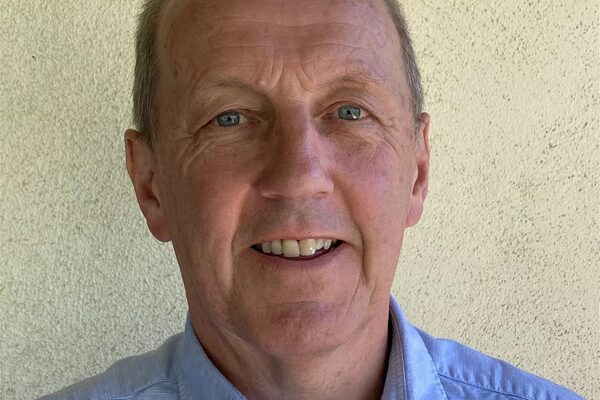The Challenge of Carbon Neutral
Exclusive Interview with Christ Goodall

Described as the world’s foremost expert on climate, Chris Goodall tells us about the challenges of achieving carbon neutrality.
What was your route into energy transition?
About 15 years ago, after a conventional business career, I decided to devote myself to trying to understand the energy transition - the move from fossil fuels to an economy which is doesn't emit greenhouse gasses.
Since then, I've written seven books on the topic.
This one looks at the challenges after the “easy” bit, after we have switched to renewables for electricity and moved everything we can to electricity.
So what are the challenges?
They range from industries which are difficult to decarbonise using electricity, such as steel or cement, to questions such as, are there enough raw materials for full Decarbonisation?
How much capital will be needed? Can the world afford to invest in the technologies for rapid decarbonisation? How disruptive will it be? Is it possible to obtain the political backing?
And the overall answer?
Yes, it’s a manageable switch, albeit expensive. And it has to happen.
Is the support there?
By the time I come to Wigtown it should be possible to see whether the Labour government is genuinely committed to pushing the growth of renewable electricity and full decarbonisation.
Starmer and Milliband understand the need for rapid decarbonisation but they also want the UK to grow its economy as fast as possible.
So, the expansion of the London City Airport has just been authorised. Air transportation is responsible for roughly 5% of the UK's emissions. If we allow expansion of air travel we'll find it very difficult to get to net zero by the target date.
There's an inconsistency in government between the people who say we must achieve our zero ambitions and those people who say we cannot compromise the rate of growth in the economy. And that's a conflict around the world.
What about countries like China?
China is an exemplar. It is decarbonising faster than anywhere, having seen there is a massive international trade opportunity. So, 50% of all cars in China now are electric. They installed well over 50% of all the world’s solar panels last year, and the same with wind. Chinese emissions will drop next year for the first time in recorded history. It's a wonderful example of how you can build a growing, successful economy.
Why is it such a problem in the West?
That’s a central question. I don't understand why in the UK, for example, we don’t realise that unless we move to the manufacturing and sale of electric vehicles, we will have no auto industry in 15 years.
The move to electric is inevitable. It's a good thing in every respect, and will eventually produce cars that are cheaper, but it does involve disruption to powerful vested interests. The same is true with heat pumps and changes to agriculture.
We cannot start moving backwards, because to do so would mean the end of our economy, whatever vested interests want.
What are the other big challenges?
One is raw materials, whether there are enough metals to produce millions of wind turbines, hundreds of millions of solar panels, and to build electric motors and so forth. The answer unequivocally is “yes”.
There are a couple of rare earths where it's going to be difficult to generate the extra supply, but nothing is impossible.
The cement industry is the most difficult because current ways of making cement involve heating carbonate rocks, limestone, particularly, and driving off the carbon dioxide. We need to change the technology or capture the carbon. And these are proving difficult and reasonably expensive, but nevertheless possible.
And agriculture?
Roughly 25% of emissions are from agriculture, perhaps two thirds of that from growing animals. The world will have to move away from “natural meat” as a primary food source. That's happening anyway in many countries. German meat consumption is down 20% in the last 10 years.
But there's going to be enormous resistance from some groups.
The way forward is either to switch to other sources of protein and other sources of food, or to replicate the taste and feel of beef and lamb by artificial means.
You can see it happening more easily in the younger generation, they can conceive of a world without meat. But it’s difficult for some others.
We need to find ways of making sure that many farmers move to growing plant-based things. But in areas of Scotland where you can't grow grain there’s not an easy answer at the moment.
What are your thoughts on nuclear power?
The question is whether the UK's best interest would be served by a large new fleet of nuclear power stations, or whether it should push for wind and solar. Nuclear power stations would be approximately twice to three times the cost per unit of electricity.
There's no obvious economic logic, particularly in a place such as Galloway, which is well endowed with wind.
I see it as a cost issue, not an ideological one. There is the caveat that the Chinese appear to be developing nuclear power stations at a fraction of the costs that we have experienced in Europe.
What are the most exciting developments for the near future?
For the UK it’s the expansion of onshore wind which represents. The best way of protecting people's standard of living, is by allowing rapid development of wind. With solar it's the technology to slightly change the chemistry of panels to improve performance - so more electricity will be produced from a standard area.
Then there are the major improvements in the development of synthetic fuels for aviation and shipping where we can't use batteries. The fuels are there, the challenge is to make them cost-competitive.